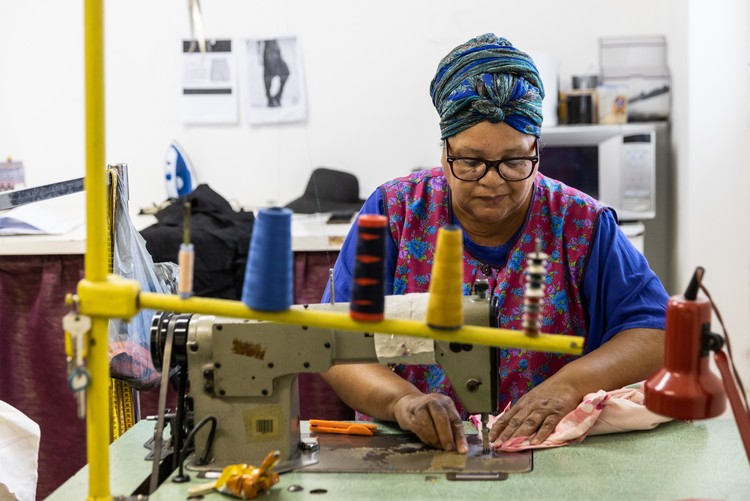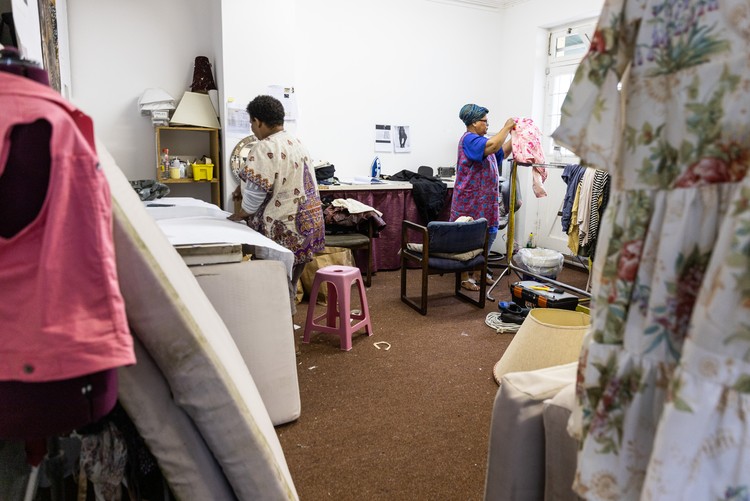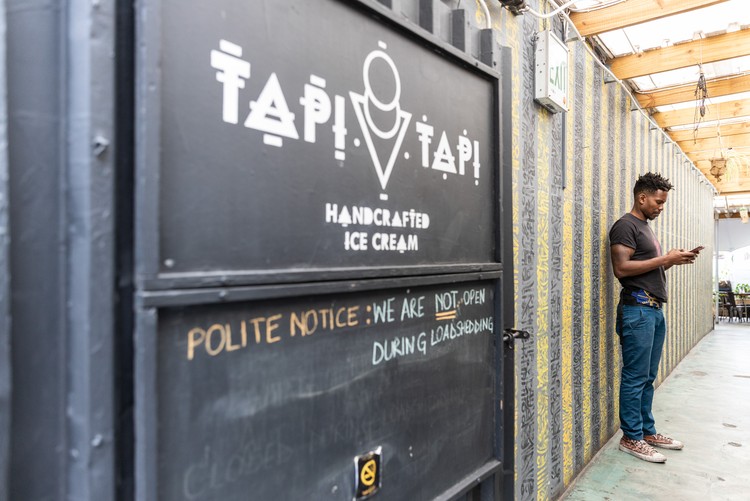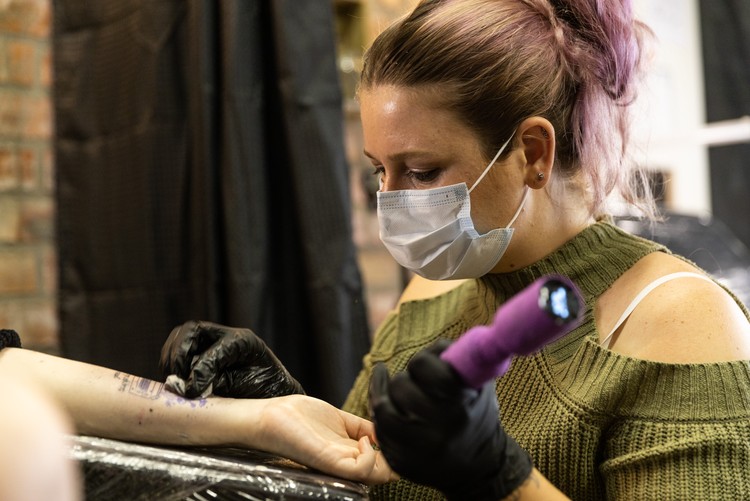“We’re losing big time”- businesses crippled by Eskom blackouts
Reduced income and extra costs are hurting local enterprise
“We’re losing big time,” says Nazeema Bieding, a small business owner in Observatory
Scheduled blackouts by Eskom started back in 2007. Yet 16 years later, the situation has grown worse and loadshedding is expected to continue until 2027. With no end in sight, many businesses and residents have been turning to battery-powered lamps, gas stoves, inverters and domestic solar power. Loadshedding has cut business hours and production, reducing income. Businesses have also had to spend large amounts finding alternative power sources.
Hairdresser Faadia Samuels has had to start a side business selling second-hand clothes to make ends meet.
Faadia Samuels started her salon, Hair Therapy, 15 years ago. She has been at her current location in Observatory for about six years. She was hard hit by the Covid pandemic, and now loadshedding is straining her finances just as she was recovering.
She can still do a wash and scissors cut for some clients, but she can’t blow dry or use a clipping machine during loadshedding.
“Clients are frustrated,” says Samuels.
Loadshed times keep chopping and changing at short notice, defeating the purpose of scheduled blackouts meant to help people to plan.
Samuel says it is “mentally stressful”.
She now sells second-hand clothing through WhatsApp groups to make up for her lost income at the salon.
Linda Claassen (left) and Nazeema Bieding own “SewAndShades”
Linda Claassen and Nazeema Bieding are the owners of SewAndShades, a small tailoring business in Observatory that makes and alters clothing and lampshades.
“Whatever you bring, I can make,” says Bieding.
But their sewing machines do not work when the power is down. If loadshedding is scheduled for 8am, they start working at 6am to make up the time. When there is a loadshedding from noon to 2:30pm, she closes shop early.
Bieding said that sometimes people need things urgently, and she loses these clients.
“We’re losing big time,” she says.
Bieding’s business partner, Claassen, says, “I can’t explain to you how I feel because it’s stressing and it’s crippling our business … What else can we do? … We can’t fight the government … We must just go on and try to work around it.”
A sign on the metal door of Tapi Tapi tells clients the business closes during loadshedding.
Tapiwa Guzha runs Tapi Tapi, an African-inspired boutique ice cream shop in Observatory. He says that four-hour loadsheds are crippling, especially if it is from 2 to 6pm. “That’s our peak time, so we’ve lost a day,” he says.
Guzha says his chest freezers can keep things cold for eight hours, so his ice cream is okay but “it’s not good to be freezing and thawing and freezing and thawing”.
The ice cream store also has a small kitchen and bar at the back but they had to stop their food service.
“Stock was just going off,” he said.
Instead, they are now focusing on the deli and creating jams and take-home flour mixes.
“We are figuring it out as we go along,” he says.
Zoë Van Zijl, owner of tattoo parlour Zodiac Tats, was using headlamps and portable ring lights to work during loadshedding.
Zoë Van Zijl, owner and head artist of Zodiac Tats, a tattoo parlour in Salt River, says they used headlamps, ring lights and “every kind of rechargeable LED” they could find to create light in order to work during loadshedding.
They had to invest in an inverter in December in order to keep going.
Sewing school Create.Hobby was unable to operate during loadshedding.
Gailene Lott-Cassels, a lecturer at Create.Hobby, a sewing and pattern-making school in Observatory, says that the unpredictability of loadshedding had badly affected their students. Classes had to be rescheduled, sometimes shifted to different days. Some students are only able to come to a class at a specific time and would miss class if there was a loadshed. As a result, she lost students and potential new applicants.
The business has now installed an inverter which helps run the sewing machines and lights, which are essential.
Warren Rasmussen says loadshedding has stopped his bakery from growing.
Warren Rasmussen, the owner of The Local Baker, a small bakery making pastries and breads in Observatory, says, “Bread is a 24-hour process.”
Baking requires things to be done in a precise way and loadshedding disrupts this. Slowing the dough’s rising by placing it in a fridge for too long can affect the quality. Loaves also become “over proofed” because the oven needs about 45 minutes to heat up.
“When these things are ready to be baked, they need to be baked,” he says.
He says his output has dropped as a result and “we are delivering less”.
He is considering a generator but one to power his business would cost R100,000.
Support independent journalism
Donate using Payfast

Don't miss out on the latest news
We respect your privacy, and promise we won't spam you.
Next: Give us electricity or move us, says Mamelodi community
Previous: Lawyer must pay clients R1.4 million stolen by scammer
© 2023 GroundUp. This article is licensed under a Creative Commons Attribution-NoDerivatives 4.0 International License.
You may republish this article, so long as you credit the authors and GroundUp, and do not change the text. Please include a link back to the original article.
We put an invisible pixel in the article so that we can count traffic to republishers. All analytics tools are solely on our servers. We do not give our logs to any third party. Logs are deleted after two weeks. We do not use any IP address identifying information except to count regional traffic. We are solely interested in counting hits, not tracking users. If you republish, please do not delete the invisible pixel.







